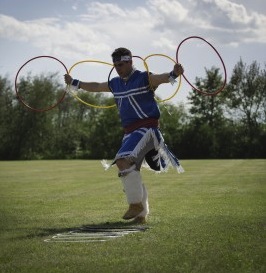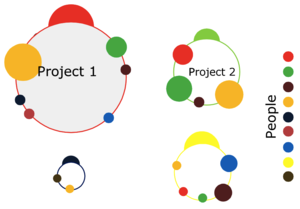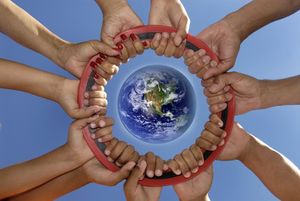Quality Assurance at Future Worlds Center
Future Worlds Center is committed to the highest standards of quality at all levels of the organization, including its people, its operations, its creations and its facilities.
Quality Assurance through policies, procedures and certifications
Constitutional and Value Policies
The Constitutional and Value Policies reflect values and aims of the Organization as they appear in Future Worlds Center Constitution and as they have emerged and developed over the years as philosophy and culture of the Organization.
Policies and Procedures
The Policies and Procedures reflect the formal rules and guidelines on how the Organization is governed and how its Members run its day-to-day operations.
Certification Schemes
All Policies and Procedures used by Future Worlds Center follow the structure and standards required by the ISO 9000 Standard. The Organization has completed the self-evaluation processes required for The PQASSO Mark. The expertise and skills of those involved in training and facilitation through the application of the Structured Dialogic Design Process is guaranteed and monitored through Future World's SDD Certification Scheme, which follows the ISO 17024 Standard.
Quality Assurance through our philosophy
Future Worlds Center philosophy expressed through its logo
The static version of the logo of Future Worlds Center consists of a four multi-centered, overlapping and interconnected circles.
The animation reveals that the circles are not isolated, but they convey a dynamic and interlinked system that can take different forms, like the form of a human, a bee, a butterfly, a duck, a fish or a heart.
The circles in our logo resemble the interlinked rings used by Indians in hoop dance, where each of the interlinked hoops represent a different created realm ... Two Leggeds, Four Leggeds, Swimming People, etc. According to the legend, hoop dance, inspired by the movements of animals and nature had much to teach the humans about values and relationships like loyalty, kindness and friendship in the realms of the never-ending circles of life.
Our logo reflects both the modus operandi of the organization (i.e., living in “multiple” worlds) and the fact that its aims, projects and people are also overlapping, interconnected and multi-centered. Therefore, even our logo reflects the understanding that our modern world requires us to work:
- In multicultural environments and
- In virtual vs. physical environments
The surfing metaphor
Future Worlds Center's philosophy usually apples the surfing metaphor to describe how the organization positions its projects. Just like a surfer rides a surfboard on the crest and face of a wave, we are always a little ahead of the others but not too far ahead; we are also not where the wave breaks and becomes violent. In other words, Future Worlds Center is not an activist organization but an organization that uses intelligence, skills, planning and appropriate tools (i.e., mainly IT) to create opportunities for positive social transformations. Projects are usually positioned right at the edge of where change can happen. Even though we use research to scientifically ground our actions, the focus is in the chronological vicinity of a few years and rarely too far ahead. The reason is to be able to communicate our values and goals with the wider possible communities of stakeholders.
Living in “multiple” worlds
The Future Worlds Center is an excellent example of an organization that operates in multiple worlds that co-exist. From the point of view of our research activities, many projects focus on the interplay between real and virtual worlds. For example, we are interested on the marriage of the human brain with modern technology and the repercussions for humanity. Our projects focus in the study of virtual worlds, children’s’ behaviours and attitudes, new complex forms of bullying and harassment, the effects on attention, learning and development in general. From the social angle point of view, Future Worlds Center promotes the Sustainable Development Goals, multiculturalism and international development. We pioneer Europe-wide in the implementation of awareness campaigns that promote humanistic values and concepts such as understanding, tolerance, forgiveness and peaceful co-existence. Specific projects range from supporting vulnerable social groups and awareness actions promoting multicultural values, to international Development Education activities.
Projects interacting and sharing vision, structure and methods
At Future Worlds Center projects, operate in concert. They do not only share people, they also share values, aims, methodologies and tools. The intermingling of people from all walks of life, with ideas, practical knowledge and personal skills development are among the major characteristics of the organization that attract visiting scholars, social entrepreneurs and interns from around the world to join. We also exploit technology to work as professionally as possible. Projects have their own websites.
Our associates become experts in using professional software for development, design, communications and project management systems, and even in programming. Almost everybody is an expert in structured dialogue. With Prof emeritus Aleco Christakis on Board, Future Worlds Center is an international leader not only in the application of the structured dialogic design process, but also in its continuing scientific expansion. Current focus is on developing theory and tools to enable scale-up to engage up to 1000 people in constructive dialogue that leads to consensus and consequently, large-scale social transformation.
Distributed project participation
Future Worlds Center Associates belong to multiple “circles” (i.e., projects) at the same time. We use the term “Distributed project participation” to describe this. Their individual contributions and responsibilities in each project might differ in intensity, and they are agreed in advance. Projects have different sizes. Each project has one Coordinator (upper semi-circle in each project) and several members (who can also be external associates). In addition, every Associate must commit a percentage of their effort for logistics. Approximately 10% of one’s time should be available “on demand” to those coordinating projects. Furthermore, eveybody is involved in securing funds and writing new applications. Again, approximately 10% of one’s time needs to be “invested” on what we call the “Distributed organizational responsibilities” principle.
Distributed sources of income
Projects may be funded or not. Money is not the criterion for supporting a project, but the interests of our associates and the compatibility with our philosophy. Usually, new Associates negotiate their participation in at least 3 main projects: A primary, a secondary and a minor. In most cases, either the primary or the secondary project is the one that also provides for the “daily living” (i.e., income). Ideally, the two primary projects are funded, which offers flexibility and stability for the individual. However, Future Worlds keeps money issues separate from projects in which its associates are active. In other words, funding options do not dictate our orientation and activities. This is called the “Tasks-money separation principle.” An easy-to-understand explanation is the following. New Associates are “trusted” funds that others have secured before them. In the realm of practical ethics, they are then expected to “pay back” the “gift” in three different ways:
- Pay back” the organization by securing new funds to support continuation of activities;
- Create analogous opportunities for others to join later;
- Support themselves by creating funding and working options.
Principle of organization-wide awareness
Everybody in the organization shares a vision for a better world. The transformation begins from within. It is considered high priority that people help each other in their projects, share successes, recognition and satisfaction. In practical terms, this requires people to stay in touch with the whole of the organization, participate in each other’s activities and projects and consider developing new projects at the inteface of their mutual interests.
Special focus on four dimensions of Quality Controls
The management of people is governed by a number of Policies and Procedures and continuously monitored through the Self and Peer Evaluations Policy and the Self and Peer Evaluations Procedures.
The Self and Peer Evaluations Policy and the Self and Peer Evaluations Procedures ensure that all associates get to evaluate their physical, virtual and human environment, thus contributing to higher motivation and team spirit. The organization is governed by a number of Constitutional and Value Policies which attempt to make Future Worlds Center Philosophy easier to implement in practice.
Competence among the personnel is guaranteed through a significant number of Policies and Procedures, which evaluate, monitor, and improve knowledge, skills, experience and qualifications at the time of joining the organization and always thereafter.
Future Worlds Center resides in comfortable spaces at the business center of Lefkosia. All projects contribute financially to the renting of the physical spaces and their maintenance (i.e., cleaning, electricity, water, etc.) The Policy: Office Rules describe processes of how such spaces are protected and maintained. Moreover however, Future Worlds Center capitalizes on modern technologies and especially IT. A number of virtual technology products are available and their usage is governed by the Policy: Using virtual infrastructure.






